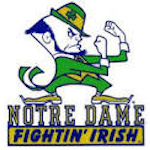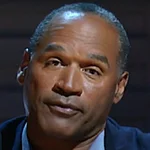 |
It's a safe bet that Washington Redskins owner Dan Snyder will wrap up his "thorough review" of changing the team's name ASAP, now that Amazon, Walmart and Target have decided to drop Redskins merchandise because the name is offensive to Native Americans. FedEx, a major sponsor of the team, also wants the name to go.
What about Notre Dame? Will the Catholic university follow suit and retire the "Fighting Irish" leprechaun logo, which earns the school millions in marketing dollars each year?
Irish Times columnist Dave Hannigan thinks so. On July 9, he wrote the Notre Dame mascot with "fists raised, hat askew and chin curtain beard, is near enough a replica of the simian-featured caricatures deployed by Punch magazine when mocking the Irish throughout the 19th century."
Every time there is a controversy about pejorative team names, Notre Dame's leprechaun too often seems to skulk beneath the radar.
Hannigan noted that Irish-Americans, "a constituency famous for clinging to an archaic version of the land of their ancestors, take perverse pride in Notre Dame's mascot."
While the fighting Irish character "looks outdated and cringe worthy to someone in Dublin, Ireland, it is regarded as a symbol of cultural heritage to a guy in Dublin, Ohio."
Notre Dame, which was founded by French Catholic priests, has a very tenuous link to Ireland.
The school's sports teams were called "Ramblers," "Nomads" and "Hoosiers," until the future leader of Ireland, Eamon de Valera, paid a visit to South Bend in 1919 and Notre Dame's football team went on to beat Army.
Did de Valera bring "the luck of the Irish" to Notre Dame? The college's newspaper, The Scholastic, thought he brought more of the fight of the Irish to the squad, giving birth to "The Fighting Irish" slogan.
The mascot didn't arrive until 1964 when Notre Dame's marketing department paid a designer $50 to draw it up.
The Fighting Irish Leprechaun has been a pot of gold for Notre Dame, but he is an embarrassment and insulting to Irish people and should be retired. As Brian Kenny, MLB broadcaster and son of an Irish immigrant, put it: the mascot "paints us as a bunch of foolish, drinking, fighting, singing, dancing, & lying gnomes."
The hero and the zero. Lt. Colonel Alexander Vindman, the top Ukrainian expert on the National Security Council whom president Trump fired in February after he testified during the impeachment proceeding, retired from the US Army on July 8.
Vindman's lawyer said he quit due to the "campaign of bullying, intimidation, and retaliation" spearheaded by the President.
Eliot Engel, chairman of the House Committee of Foreign Affairs, hit the right note by praising Vindman for courageously telling the truth about the President’s corruption and abuse of power
"That's how the President and his enablers regard public servants—in uniform or otherwise—who uphold their oaths to the constitution, rather than giving into the cult of personal loyalty that has rotted our government from the inside for the last three and a half years," said the New York Congressman
When the nation rids itself of the Trump presidency, Vindman will rightly be viewed as the heroic embodiment of courage and service to this country. Perhaps, Joe Biden can coax Vindman out of retirement.
Princeton University goes into reputational recovery mode. The university removed Woodrow Wilson's name from its public affairs school due to his "racist thinking" earlier this month and now requires a diversity course for its Master in PA program. Woodrow certainly could have used one.
The Daily Princetonian reports that graduate students at the soon-to-renamed Woodrow Wilson School of Public and International Affairs, have been demanding such a requirement for more than a year, long before the murder of George Floyd.
"We are grateful to the students who advocated to keep this issue as a priority, and we thank the faculty and staff who have considered these matters carefully and ensured proper implementation,” said Princeton.
Since 2015, students have demanded that Wilson's name be stripped from the school.
Wilson, a descendent of Confederate soldiers, bought into the "Lost Cause" narrative about southerners fighting the Civil War to defend their agrarian way of life against rapacious northern industrialists.
At the White House, he hosted a screening of "The Birth of a Nation," which glorified the Ku Klux Klan as defenders of southern culture.
What took Princeton so long?


 The techniques deployed by OJ Simpson's defense team in the "trial of the century" served as a harbinger for those used by Donald Trump... People worry about the politicization of medical science just as much as they fret about another pandemic, according to Edelman Trust Barometer... Book bans aren't restricted to red states as deep blue Illinois, Connecticut and Maryland challenged at least 100 titles in 2023.
The techniques deployed by OJ Simpson's defense team in the "trial of the century" served as a harbinger for those used by Donald Trump... People worry about the politicization of medical science just as much as they fret about another pandemic, according to Edelman Trust Barometer... Book bans aren't restricted to red states as deep blue Illinois, Connecticut and Maryland challenged at least 100 titles in 2023. The NBA, which promotes legalized gambling 24/7, seems more than hypocritical for banning player for placing bets... Diocese of Brooklyn promises to issue press release the next time one of its priests is charged with sexual abuse... Truth Social aspires to be one of Donald Trump's iconic American brands, just like Trump University or Trump Steaks or Trump Ice Cubes.
The NBA, which promotes legalized gambling 24/7, seems more than hypocritical for banning player for placing bets... Diocese of Brooklyn promises to issue press release the next time one of its priests is charged with sexual abuse... Truth Social aspires to be one of Donald Trump's iconic American brands, just like Trump University or Trump Steaks or Trump Ice Cubes. Publicis Groupe CEO Arthur Sadoun puts competition on notice... Macy's throws in the towel as it appoints two directors nominated by its unwanted suitor... The Profile in Wimpery Award goes to the Ford Presidential Foundation for stiffing American hero and former Wyoming Congresswoman Liz Cheney.
Publicis Groupe CEO Arthur Sadoun puts competition on notice... Macy's throws in the towel as it appoints two directors nominated by its unwanted suitor... The Profile in Wimpery Award goes to the Ford Presidential Foundation for stiffing American hero and former Wyoming Congresswoman Liz Cheney. JPMorgan Chase chief Jamie Dimon's "letter to shareholders" is a must-read for PR people and others interested in fixing America and living up to its potential... Get ready for the PPE shortage when the next pandemic hits... Nixing Netanyahu. Gaza carnage turns US opinion against Israel's prime minister.
JPMorgan Chase chief Jamie Dimon's "letter to shareholders" is a must-read for PR people and others interested in fixing America and living up to its potential... Get ready for the PPE shortage when the next pandemic hits... Nixing Netanyahu. Gaza carnage turns US opinion against Israel's prime minister. Trump Media & Technology Group sees Elon Musk's X as an option for those who want the free expression promised by Truth Social but without Donald Trump, owner of 57.3 percent of TMTG... Chalk one up for "anti-woke warrior" governor Greg Abbott as University of Texas lays off 60 DEI-related staffers... Five percent of Americans see the US as its own worst enemy, according to Gallup.
Trump Media & Technology Group sees Elon Musk's X as an option for those who want the free expression promised by Truth Social but without Donald Trump, owner of 57.3 percent of TMTG... Chalk one up for "anti-woke warrior" governor Greg Abbott as University of Texas lays off 60 DEI-related staffers... Five percent of Americans see the US as its own worst enemy, according to Gallup.


 Have a comment? Send it to
Have a comment? Send it to 
No comments have been submitted for this story yet.